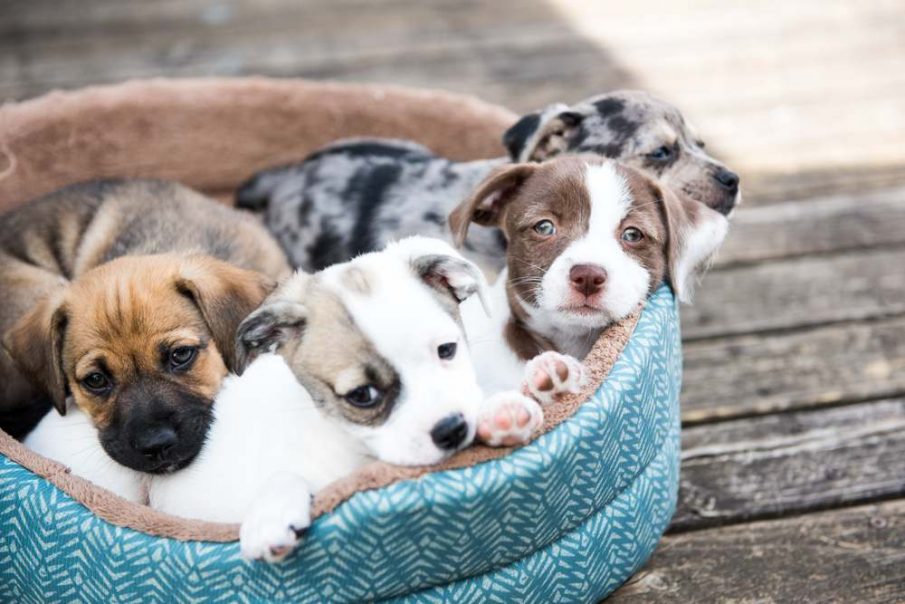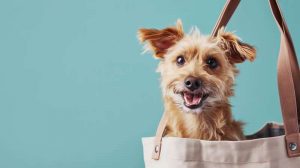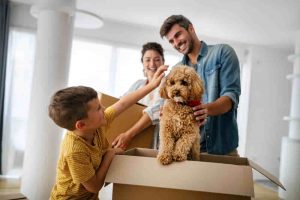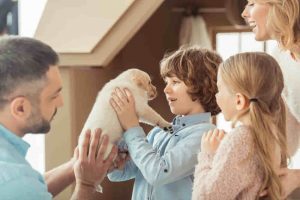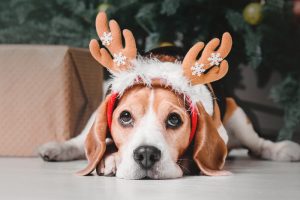When you first get a puppy we all know that feeling of excitement. A puppy is a bundle of joy that is always happy to see its owner, is always playful and then does its business on the carpet. Then you speak to a couple of people and find that they are talking a lot about the importance of puppy socialisation…
Paws in Work have dealt with one or two puppies in their time. Resident blogger, Olivia Kennaway, has given us the low down on the importance of puppy socialisation.
What Is Puppy Socialisation?
The Oxford Dictionary defines socialisation as; 1. the activity of mixing socially with others, 2. the process of learning to behave in a way that is acceptable to society. In puppy terms, this translates to the learning process a pup must go through to become a well adjusted and happy dog with humans, other dogs and animals and within their environment.
Why Do We Need To Socialise?
These life skills ensure your pup is confident, relaxed and able to communicate within their social groups and to people. This can be achieved through multiple experiences with as many different people (adults and children) and animals as possible such as travel, playtime, meeting new people, hearing new sounds and being in new situations.
If your puppy isn’t socialised from an early age then there is the risk that your dog will grow to be nervous, anxious, aggressive or prone to panic in new situations. The sooner that you start with puppy socialisation the better, as once a dog develops past their fear period, they will find it more difficult to take on positive behavioural traits that socialising promotes.
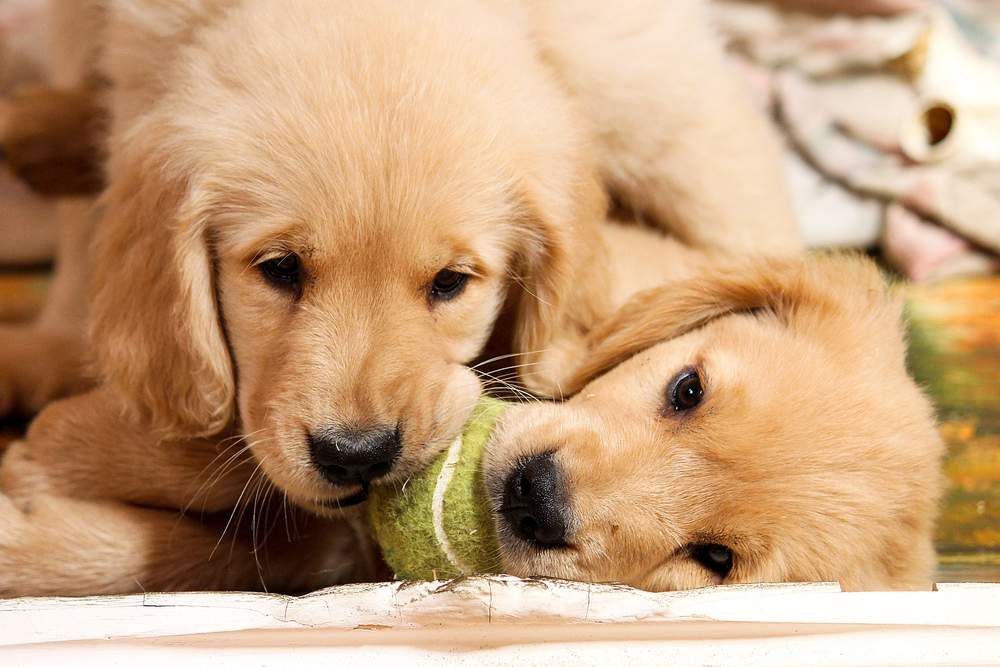 What Is The Fear Period?
What Is The Fear Period?
At Paws in Work, we bring a litter of loveable puppies along to company offices to help with the puppies socialisation programmes whilst also giving team members a chance to get away from their desks and relax for a brief moment, before returning to their work with smiles on their faces. The litters of puppies we work with are between 7-13 weeks old, which coincides with a puppy’s fear period, (which is typically around the 8-10 week mark depending on the breed). This is when your puppy is more sensitive to the environment around them. The careful socialisation of a puppy helps them to understand that not all new situations are something to be wary of, and helps build their confidence through positive reinforcement. They learn to accept the situations they are in and this helps prevent them from becoming fearful of similar situations in the future.
The ‘fear period window’ tends to close at roughly 16-17 weeks old. New experiences, people and other animals encountered during this time (the socialisation period) tend to then be accepted and enjoyed experiences throughout their lives, helping them develop positively and healthily. After the window closes, new and unfamiliar experiences, people and objects will be approached with increased caution. Puppies may become fearful which can have long-lasting psychological effects on a young dog, potentially leading to aggressive behaviours (a common cause of dogs ending up in rescue shelters).
Puppy Socialisation From 2 To 6 Weeks (Breeders)
According to Animal Behaviourist (with a specialist in dog behaviour) and training consultant Ewa Highland, puppy socialisation should primarily start at the breeder’s home. Ewa says ‘this is arguably the most important part of the socialisation process and it starts as early as from when the puppy is 2 weeks old. During this time they develop emotional ties to humans and they learn dog language. This time is crucial for the development of the puppy and how it will cope with later life’.
Puppy Socialisation From 8 To 16/17 Weeks (Owners)
Socialising your pup as soon as you collect them is crucial to ensure they have the best possible start to life and will be a positive companion and part of the family for many more years to come. As a rule of thumb, a puppy should meet 90 people in their first 90 days to be exposed to enough stimuli and occurrences to be truly socialised. However this can be particularly difficult for new pup owners to achieve for many reasons, the main one being that puppies are not recommended to be allowed outside in a non-controlled environment until after their second vaccination at around 14-16 weeks. This minimises the risk of them picking up a disease before they are properly protected. However, there are ways you can begin to socialise your pups in a safe way i.e. carrying them on short walks, introducing them to different outdoor noises and so on.
At Paws in Work, working with our ethical breeder partners, we are able to socialise litters of puppies in a safe, controlled and fully sanitised environment before their vaccinations, helping to give the puppies a positive kick start in life!
By Paws in Work blogger, Olivia Kennaway.

